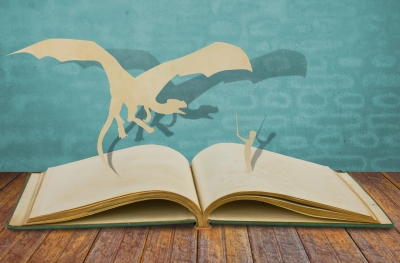The Adult Mind and Fiction


Think of the type of person you generally associate as being a “Lord of The Rings” fanatic. They maybe wear glasses, have a personal book collection, love other fantasies in general and are maybe much younger.
The perception of fantasy is that it’s something for children, or younger people. That it’s just that, fantasy; an escape from the boring real life adult world.
Lauren Eiseley of The New York Herald Tribune famously wrote of J.R.R. Tolkien’s “The Lord of The Rings” “ … The adult mind has, if anything, greater need of fantasy than that of a child … .”
This quote is particularly resonant with me now, having just passed what many would consider the real threshold into adulthood at age 21, and having seen this quote in every edition of “The Hobbit” and “LOTR” I’ve read since a very young age.
Is the whole thing that fantasy is for kids a misconception? Is Eisley right to challenge this stereotype? In order to bring some light to this situation, it’s necessary to draw attention to a few important statistics.
According to nickyee.com, only 25 percent of MMORPG, or massive multiplayer online role playing games, are teenagers. These are games similar to World of Warcraft, which everyone, at this point, has heard of.
These are games where you can create your own virtual avatar as an elf or goblin or what have you, and run around with other players fighting monsters, each other, fishing, pretty much anything you can imagine.
The majority of these games follow the formula of being set in some Tolkien-esque good-guys-vs-bad-guys world of medieval architecture and swords and dragons. The fact that only 25 percent of people who play these games are under 18 is shocking,
The same site goes on to say that the average age of an MMO player is actually more around 26. This could be attributed to children of the ’80s and ’90s who grew up as old-fashioned “Dungeons and Dragons” nerds and were therefore, naturally ready to buy into the next generation of fantasy role playing, which happened to be done on computers instead of with pens and paper.
The adult mind craves fantasy. Ask any 20- 30- 40- and maybe 50-something if they enjoy their life of waking up at 7 a.m., working in an office with people they hate and getting off at 5 p.m., drinking beer and watching ESPN, then going to sleep with their significant other after making dinner and cleaning up after kids.
These are the fulfilling things in life, but more often than not, people crave escapism. People crave the idea that they can closely relate to a suave-looking 40-something man with ass-length hair who hacks down orcs and marries an elf.
Part of it is seeing some of yourself in these characters, and another part is actually placing yourself in their shoes through video games and other interactive entertainment. In this sense I would argue that the adult mind definitely has a greater need for fantasy than children, even going so far to say we deserve it more.
This is not to say children aren’t in need of wonder or fantasy. Child workers during the rise of industrial America and Great Britain, were given fairy tales, children’s stories, etc. as fuel to keep their young minds captivated while they toiled.
Fantasy contributes to children’s senses of wonderment and creativity, and helps shape their recognition and definitions of good and bad.
However, at the end of the day, the adult mind wins out.
You are older, wiser and have experienced more of what the world has to give you, and given back what you can. Someone who is literally more worldly surely has more of a need to escape it every now and then, don’t they?